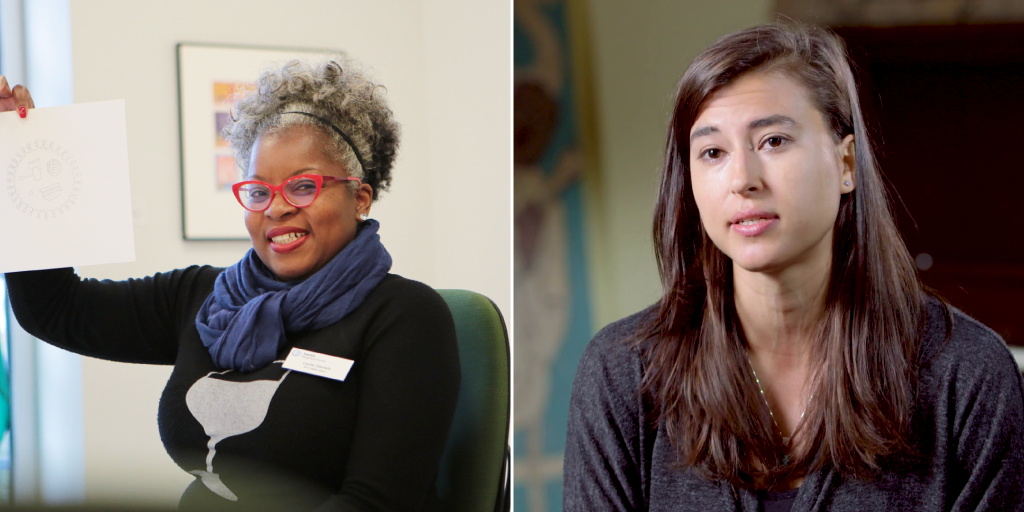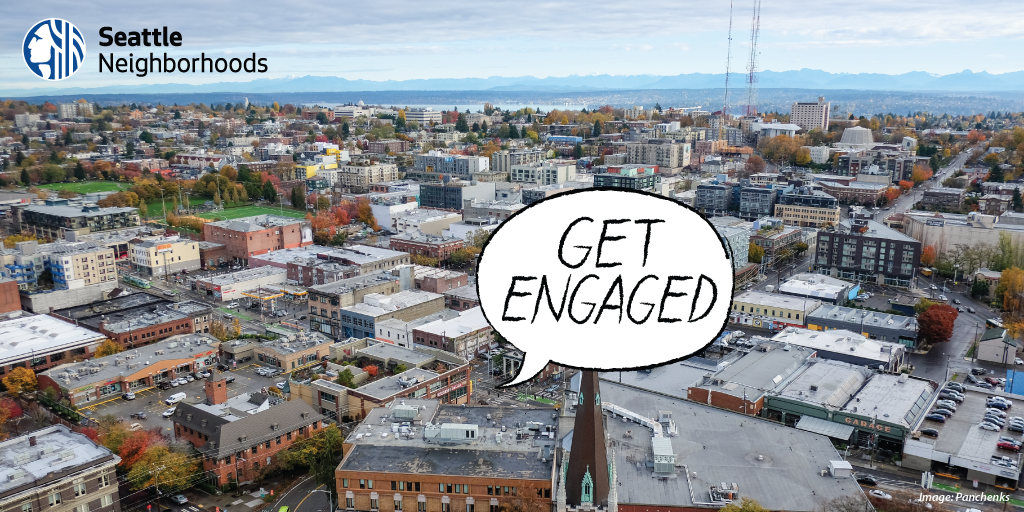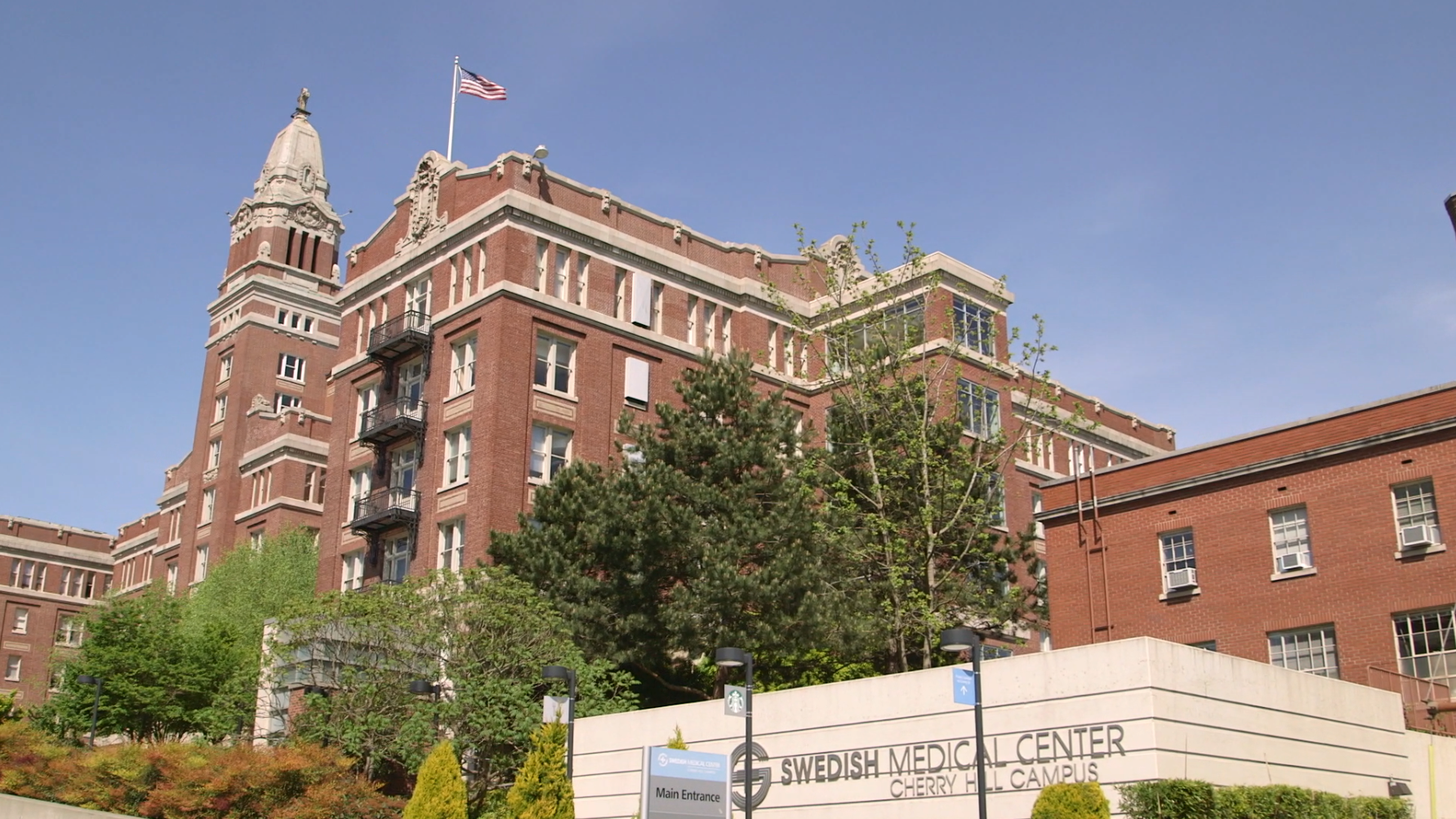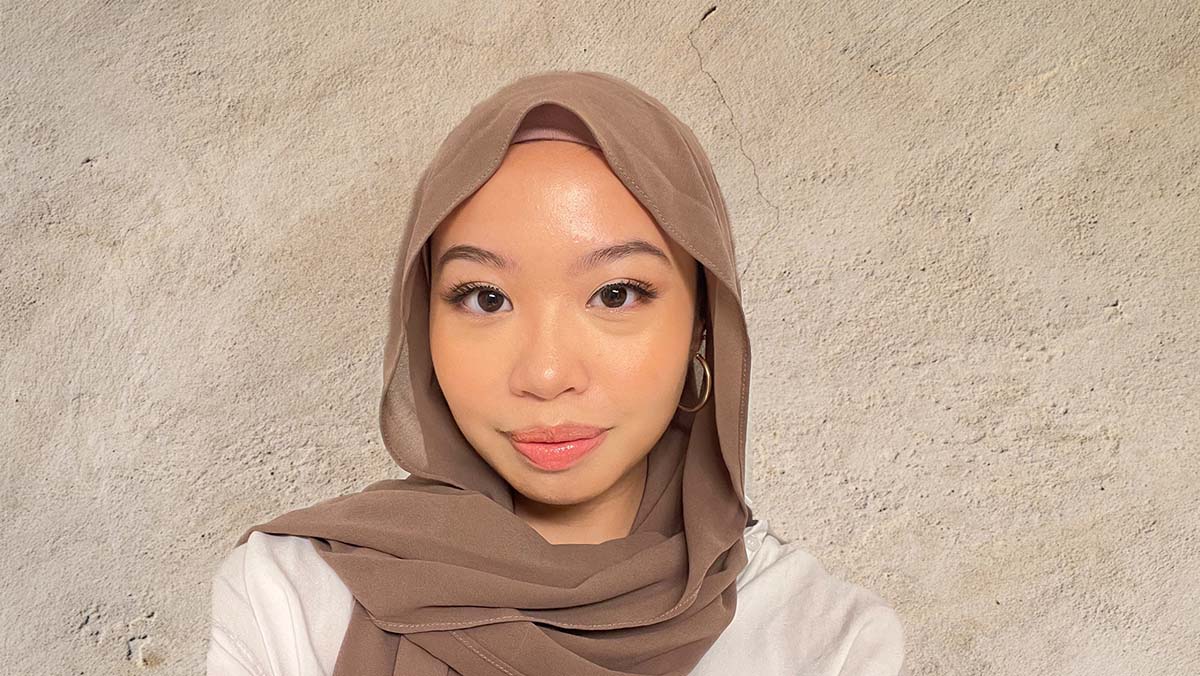 Leslie Daniels (l) and Hilary Nichols (r)
Leslie Daniels (l) and Hilary Nichols (r) Seattle Youth Commission (SYC) coordinator Leslie Daniels and People’s Academy for Community Engagement (PACE) coordinator Hilary Nichols wanted to explore how they might elevate the voice of Seattle’s youth by connecting them with the hands-on engagement and leadership development that forms the backbone of the PACE curriculum.
“We were missing black and brown male voices on the youth commission,” Leslie explained. “Consequently, I was already in cahoots with Hilary about how we could create an opportunity for PACE and SYC to engage these youth.”
Owing to the work of the Seattle Housing Authority’s (SHA) youth board, just such an opportunity presented itself. The board was eager to make sure that their peers in NewHolly and Rainier Vista had access to education, employment, and enrichment programs as well as a voice in their communities, so they built on their earlier successes to organize the Seattle Teen Summit. The goal of the summit, which focused on empowering and engaging young leaders from diverse backgrounds, was a natural fit for both the SYC and PACE programs. When Leslie and Hilary saw the Call for Proposals for the summit, they were both excited by the chance to take part and collaborate on a new youth engagement project.
To prepare for the summit, Hilary and Leslie met multiple times to develop the curriculum for the workshop. During the planning, the Office of the Mayor also became involved as they had begun exploring policy initiatives to help youth obtain higher wage jobs out of high school and college. The partnership led to a final curriculum that was entirely new and focused on issues concerning Seattle’s youth.
“Youth are underrepresented in civic participation. They’re a really powerful group of people. Not only are some of them approaching voting age, but they’re often the ones experiencing all the things that we’re trying to address in the city – income inequality, racism, sexism, and the criminal justice system.”
This youth focus was a particularly important goal for both Leslie and Hilary. As Hilary observed, “youth are underrepresented in civic participation. They’re a really powerful group of people. Not only are some of them approaching voting age, but they’re often the ones experiencing all the things that we’re trying to address in the city – income inequality, racism, sexism, and the criminal justice system.”
Through this collaboration, Leslie and Hilary were able to listen to the stories and experiences of the youth participants and gain insight on how they might adjust their curriculum for the future. They were also able to collect ideas that might inform the policy discussions taking place in the Office of the Mayor. Moreover, the workshop offered both the participants and the facilitators something vital: the opportunity to foster relationships built on trust. “Intimate sessions like this create space for hearing youth voice in a way that doesn’t feel tokenizing to them,” Leslie noted. “There was no hidden agenda, it was really Hilary and me having conversations with those youth about what their needs were. Sometimes, I feel like we look at how we’re impacting them, but I also think back to how impacted we were by the exchange and that, to me as a city government official, is what makes all of this worthwhile in the end.”
For Leslie and Hilary, the summit presented an opportunity to test how their programs might complement each other. Encouraged by the experience, they’ve already begun working together to think about how they might continue to work together. “This was a really great way for us to test the waters of our collaboration,” said Hilary. “It was invigorating because we had some successes and challenges. This is a rich opportunity for us to bring civics education from the government to youth.”


